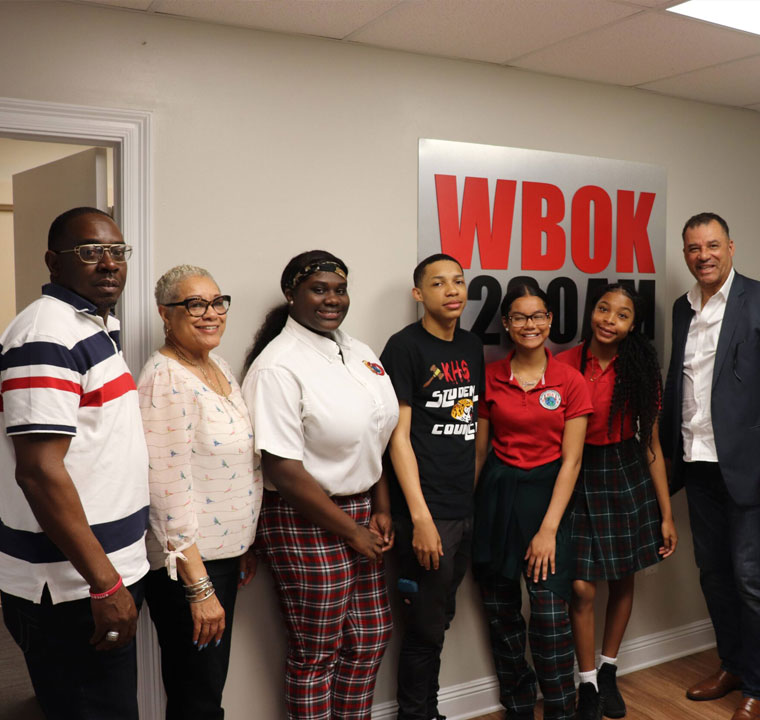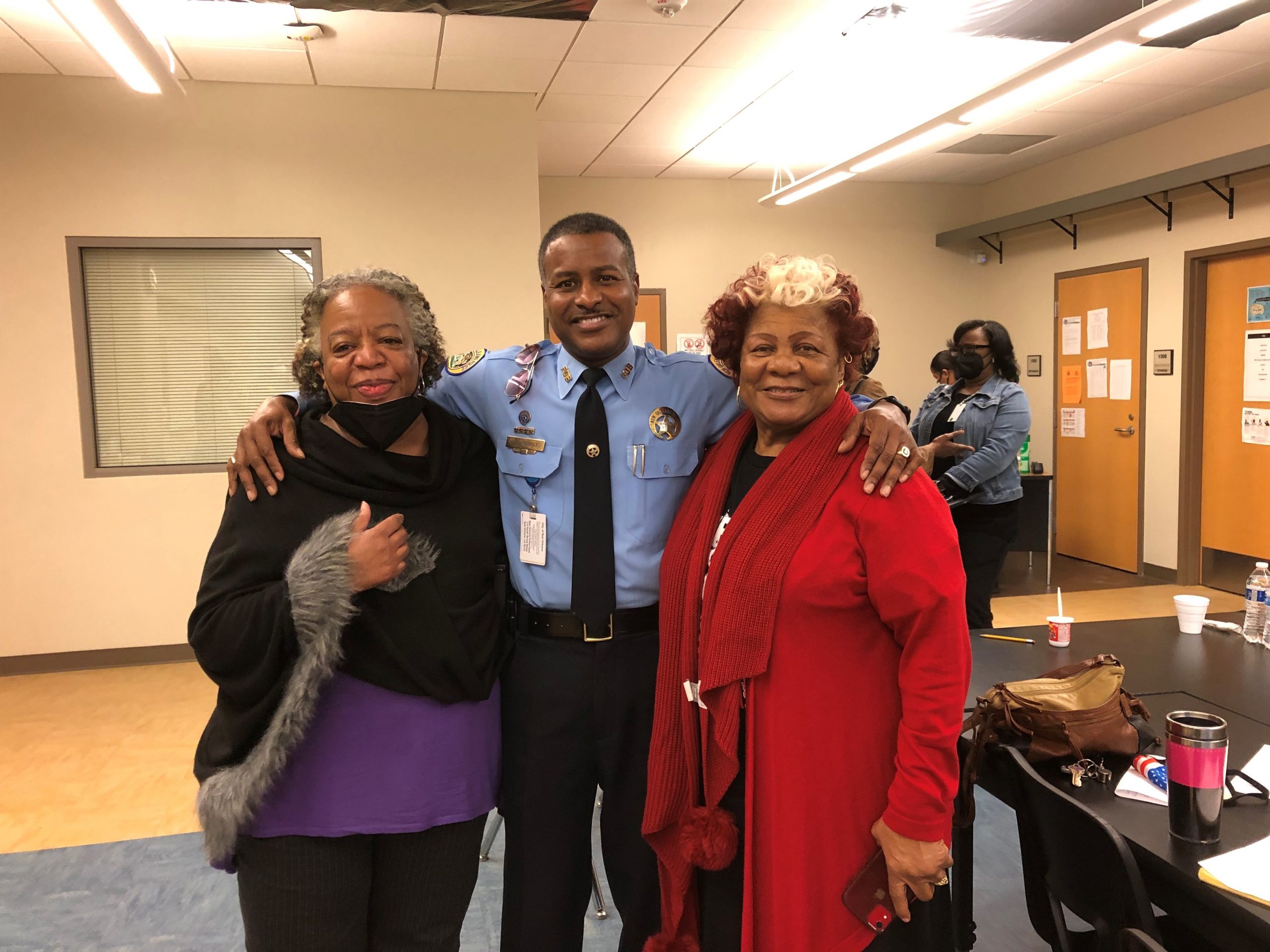FORENSIC LAB & CRIMINAL JUSTICE ACADEMY SET TO OPEN AT MLK, J.R. HIGH SCHOOL
By C.C. Campbell-Rock
The M.L.K. Jr. Science and Technology Criminal Justice Academy (C.J.A.) opens in February 2022 at the Dr. Martin Luther King Jr. Charter School for Science and Technology, located at 5300 North Rocheblave Street in the Lower Ninth Ward.
The C.J.A.’s goal is to teach students about the criminal justice system. And the C.J.A will expose them to job opportunities and criminal justice careers.
The Lower 9th Ward Economic Development District (Lower Ninth Ward E.D.D.), established in 2018, is the lead sponsor of the C.J.A. The agency is investing $55,000 in Louisiana’s first C.J.A. program. The program creates a criminal justice career pipeline for 60 high school students.
The eight-week training program features lectures by criminal justice professionals, hands-on forensics lab training, mentorships, civil service test-taking skills training. And students join dual high school/college enrollment program to pursue secondary degrees in criminal justice.
School administrators, the Friends of King School, the charter management organization, Southern University at New Orleans, the New Orleans Police Department, the Orleans Parish Sheriff’s Office, the District Attorney’s Office, the mayor, councilperson, and the Lower Ninth Ward state legislators are collaborators in the effort to stand-up the state’s first Criminal Justice Academy at a high school.
Local Pastor Leads the Way
Reverend Willie Calhoun is a board member on the Lower Ninth Ward E.D.D He chaired a recent planning meeting at the science and technology high school. He credits former State Senators Wesley Bishop and J.P. Morrell and State Senators Jimmy Harris, Joe Bouie Jr., and State Representative Candace Newell for creating the Lower Ninth Ward E.D.D.
“The Criminal Justice Academy offers the opportunity for our children to be introduced to the criminal justice system before the system is introduced to them,” Calhoun said in an interview with Think 504. “We want to prepare our children to get decent-paying jobs.”
“The reality is that our children are not prepared for the opportunities in science and technology that will emerge over the next five to ten years,” he added. Calhoun is a retired electronics engineer. He worked for the Federal Aviation Administration.
Finding out that children couldn’t pass the civil service tests motivated Calhoun to pilot the C.J.A. program. “We’re going to teach to the test to get them prepared to go into City Hall and federal jobs.” Calhoun also wants youth to be prepared to work in technology and science jobs. “Where are the technology jobs going to be? “What is M.I.T. working on? If we’re (youth) not there, we will be behind.”
Principal Lindsay Moore, outgoing Orleans Parish Sheriff Marlon Gusman, and Councilman Oliver Thomas attended the planning meeting, among other professionals.
Dr. Doris Roche-Hicks, the school’s former principal, retired educator Bobbie Cornish, Shelia Seals, a social worker, Friends of King School District, and NOPD Officer M.G. Merricks, a community engagement officer, were at the meeting. Cornish taught Merricks, a ninth ward resident when he was a high school student.
: “I think it’s a wonderful project. We need to motivate the students and jazz them up, so they will see the glory and the excitement in being a criminal justice person working with the law,” Cornish says.
“This started with a conversation between me and Pastor Calhoun and several members of M.L.K. It was something that I remembered when I worked as a resource officer at Kennedy High School, just introducing kids to the criminal justice field,” Officer Merricks explains.
“We’ve got a lot of kids involved in the criminal justice activity, crime and whatever it may be, and a lot of times when they are introduced into the system, they committed a crime that they didn’t even realize was a crime. So how can we fix that? If we can educate these kids early enough about the criminal justice system and the criminal justice field, that will help them not tmake a mistake.”
Merricks says the youth have options besides being the police. “You can be an educator, a forensic examiner. In this program we’re going to introduce the children to all of that. We’re going to stay in contact with the kids constantly. I’m excited that the D.A.’s office came on and SUNO and everyone else because we want the kids to pick a career and stick with it. It’s a lifetime commitment. We want to change a generation.”
“This program is truly exciting. We’re starting something in the Lower 9. We’re not graduating children to the streets,” says Dr. Hicks, the school’s former principal.
“There is a great demand for people to join the criminal justice system says, Dr. Gregory Ford. Ford, the Vice-Chancellor for Academic Affairs at Southern University at New Orleans. Ford is assisting with setting up dual enrollment for students who want to study criminal justice at Southern University.
“It’s important for talent to stay here,” Ford adds. The Monroe native recently moved back to Louisiana after living and working in Georgia for 20 years.
The program, he says, is for students who are about to graduate and recent graduates. Students can take college-level classes at the M.L.K. campus. dual enrollment classes. “That eliminates transportation barriers that prevent students from attending the university.” Students can also take online criminal justice classes and finish a bachelor of science degree requirements in three years.
Ford sees the program as a means to improve relationships between police and the community. Students can launch a criminal justice career in law enforcement at the NOPD with or without a degree.
“There is a shortage of minorities in criminal justice jobs,” says Ford.
The New Orleans Police Department (NOPD) certainly needs more police officers when violent crime is up in New Orleans.
Related: Changing our Approach to Education

“The department is now at a 50-year low in staffing. The number of officers has dipped below 1,100 — That’s about 220 fewer than just two years ago,” WWL-TV reported in December.
“According to FBI UCR data, violent crime is up significantly in Louisiana,” said New Orleans F.B.I. Special Agent in Charge Doug Williams spoke at the Metropolitan Crime Commission annual luncheon last December.
“Community policing is not the only job at the NOPD,” Officer Merricks says. The department has specialized unit jobs involving social sciences, digital forensics, criminal records, crime analysis, crime prevention, domestic violence, crisis management, financial crimes, community engagement, and public information.
NOPD recruits earn $52,885 per year ($54,885 per year with a qualified Bachelor’s degree) after one year of qualified service.
Outgoing Sheriff Marlin Gusman is involved in the C.J.A. project. “This is fundamental to public safety, essential to helping our community reach its fullest potential. The Criminal Justice Academy will give young people exposure and knowledge to avoid and perhaps be a positive part of the criminal justice system, not the negative aspect.
Councilman Oliver Thomas says the project is an excellent initiative.
“The Criminal Justice Academy at M.L.K. is a solution, not only to what we’re seeing with some of this juvenile crime but also with justice in getting our children to understand the law, so they don’t have these interactions that are costing them their lives and freedom in the first place.”
“It’s really par for the course the way Dr. Hicks and her staff have established this school, in this community post-Katrina. It’s a testament to the people sitting around the table. I am fired up about this,” adds Thomas, who grew up in the Lower 9, attended Lawless High School, and is now the area’s new City Councilman.
“This project gives us access to civil service jobs. This community deserves the best.”
“I think it’s a very positive project. It’s going in the right direction, especially in terms of encouraging children to participate in civil service, to take advantage of the opportunities of working in the city and especially with the police department,” says Dr. Lindsay Moore, the school’s principal.
“They don’t have to go into the police department but they need to be made knowledge of the various areas that are involved with the police department. I think we’re on the right track. Career preparedness is the key,” he adds.
Dr. Ford hopes the program becomes “a national model that encourages citizens to police their own communities, become forensic and social scientists, attorneys, judges, and criminal justice researchers and administrators.”

